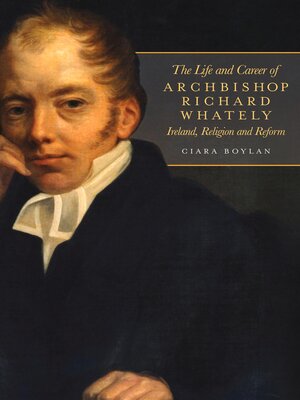The life and career of Archbishop Richard Whately
ebook ∣ Ireland, religion and reform
By Ciara Boylan

Sign up to save your library
With an OverDrive account, you can save your favorite libraries for at-a-glance information about availability. Find out more about OverDrive accounts.
Find this title in Libby, the library reading app by OverDrive.



Search for a digital library with this title
Title found at these libraries:
| Library Name | Distance |
|---|---|
| Loading... |
Richard Whately (1787-1863), was a significant but often overlooked figure in nineteenth-century Ireland. Appointed as Church of Ireland archbishop of Dublin in 1831, his liberalism made him a highly controversial figure within his own church. His wide-ranging involvement in Irish economic and social affairs, including as chairman of the Whately Commission of inquiry into Irish poverty and as the de facto head of the National Education Board, saw him move far outside the ecclesiastical sphere to engage positively with a broad range of economic and political issues. A key thinker on various aspects of the condition of Ireland, Whately came to represent a form of liberal unionism that sought to strengthen Ireland's place within the Union by means of reformist schemes of improvement. A singular and eccentric character, many of Whately's efforts at reform floundered in the face of opposition. However, his willingness to sanction novel devices as part of an effort to instigate improvment speaks to an overlooked home-grown reformist impulse designed to meet the needs of Irish circumstances. This biographical account examines the life and career of an influential figure, and assesses the impact of his ideas and exertions in the 'age of reform'. [Subject: Irish Studies, History, 19th C. Studies, Biography, Religious Studies, Age of Reform, History of Education, Church of Ireland]







